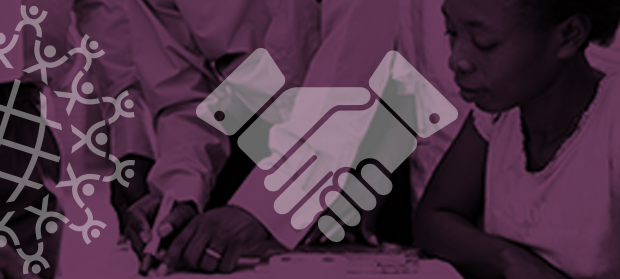Where We Work
See our interactive map


To all frontline health workers without a voice: We are listening.
It may seem that we are losing ground. From celebrity tax havens to Black Friday bargain brawls, it may seem that the great divide between the 2% and the 98% has swallowed our moral compass. That we have lost our direction, and our human north is pointing toward despair.
But many of us are still working to build a healthier, safer world. And we can’t do it without health workers, particularly those working on the front lines of care in areas around the world most in need.
For those frontline health workers without a voice, and for those on whom the world may seem to have turned a deaf ear: we are listening.
In the 2016 UN Secretary-General’s High-Level Commission on Health Employment and Economic Growth, the global community formally recognized that providing access to health, and access to employment through the health sector, brings social and economic gains.
The World Bank’s initiative for human capital calls on the private sector to join the global development community and invest in the future of humans as resources to deliver health and education services and as recipients of those services toward greater equity and social and economic growth.
During last month’s Fourth Global Forum on Human Resources for Health in Dublin, national governments and global thought leaders came together with the understanding that money spent on health workers is not a cost but an investment that buoys communities, strengthens health systems, and grows national economies.
Through innovative financing and workforce constructs, governments are learning to leverage aid dollars and private capital to fill budget gaps and free national resources toward public goods.
Nowhere are those resources better spent than at the community level, and we must make those investments count. In South Africa alone, investments in community health workers bring an estimated 10:1 return on that investment.
When we invest in primary health care and community health workers, we are accountable to make every dollar count.
In a session discussion hosted by the Medtronic Foundation and IntraHealth International at the forum last month, panelist Hafeez Ladha highlighted that we need about $3 billion to strengthen community health systems in Africa, but only $1 billion is being invested. Further, most of that $1 billion is coming from foreign donors, and over half is funneled into vertical disease paths.
Even with limited seed funds, we can steward resources to optimize their impact. For example:
These are just a few examples, and only the beginning of what we can do—what we must do—as good stewards.
Countries must determine the costs of their development plans, plan their interventions for the whole system rather than for just one cadre of health workers or one disease, and build sustainability not just for the project at hand but for the system and its human resources. Countries must map their resources and look for links across levels and sectors so they can leverage what they have and create what they don’t.
We are responding with investments in human capital toward better health, education, and job opportunities so countries grow strong, communities thrive, and women and youth find their true north.
We pledge to be good stewards of the resources we have so that primary care services bring real value for money—saving the lives of mothers and babies, creating learning and employment opportunities for youth, and providing ongoing services for adults and the elderly with noncommunicable diseases or long-term care needs.
Learn more about IntraHealth’s involvement at the Fourth Global Forum on Human Resources for Health last month, and check out #HRHforum2017 and Global Health Writes for even more details.
Get the latest updates from the blog and eNews




